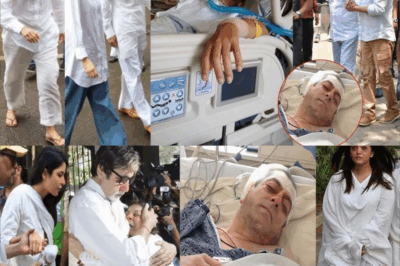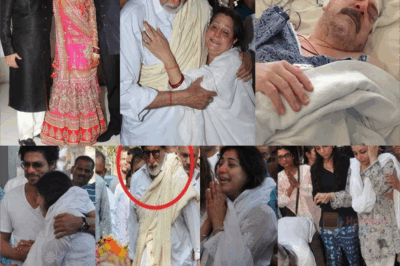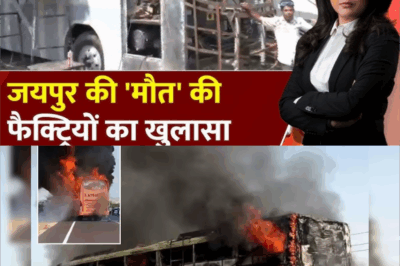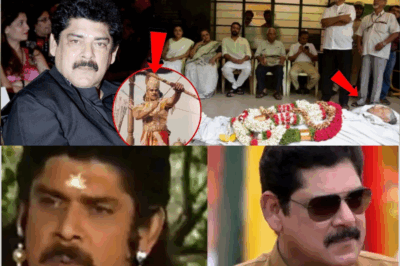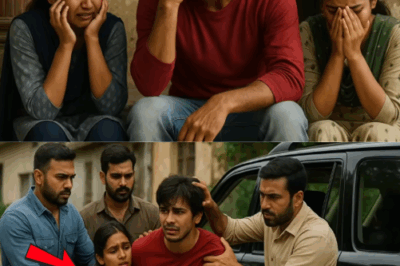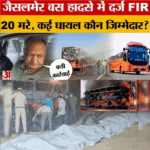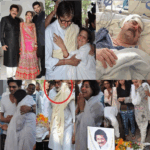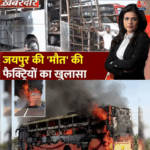Rajasthan News : जैसलमेर बस हादसे में पहली FIR दर्ज, बस मालिक और ड्राइवर पर लापरवाही का आरोप
.
.
🚨 Jaisalmer Tragedy: Political Scrutiny Rises Over Negligence and Bureaucratic Delay
Opposition Leaders Question Accountability on Bus Safety, Election Timing of Legal Cases, and Unanswered Questions on Major Crimes.
The recent bus tragedy in Jaisalmer, which claimed 21 lives, has not only sparked public horror but has also intensified political scrutiny, leading to sharp criticism of governmental priorities and efficiency. In a press interaction, a key political figure addressed the disaster and several pressing national and regional issues, emphasizing accountability, democratic fairness, and the need for justice.

The Jaisalmer Inferno: Questioning Accountability
The central focus of the discussion was the devastating bus fire in Jaisalmer. The politician expressed profound sorrow over the 21 lives lost and the 71 individuals severely burned, but immediately shifted the conversation toward the failures in oversight.
The core question raised was: How did a bus—reportedly newly purchased—turn into a fireball? The politician questioned whether the cause was a technical fault, stressing that the incident occurred without an external accident. He urged the government to treat the disaster with seriousness, demanding an immediate investigation involving the bus manufacturing company to determine the technical flaw.
A significant point of concern was the public report that the bus doors became locked upon catching fire, trapping the passengers inside. While acknowledging this information was anecdotal, he insisted that the government must formally investigate this critical safety failure.
Furthermore, he highlighted the agonizing delay faced by the victims’ families at the hospital in Jodhpur, where the DNA testing process was delayed until 11:00 AM, despite families arriving early in the morning. He drew a sharp contrast between the rapid response usually afforded to a “minister or big politician” during a crisis, and the slow, indifferent treatment of the common public, stating that the gap between the politician and the common citizen remains wide, even when people are burnt alive.
National Politics and the Timing of Legal Action
The discussion quickly moved to national political dynamics, specifically addressing the timing of major corruption investigations, such as the IRCTC scam involving Lalu Prasad Yadav and Rabri Devi, which became active just before the elections.
The politician expressed astonishment and criticism regarding the perceived pattern of central agencies—the CBI and ED (Enforcement Directorate)—and even the courts becoming “active” only in the immediate run-up to elections.
He argued that this timing undermines the core principles of democracy, which mandates that all political parties and candidates be given equal opportunity to campaign and compete. He stressed that the Model Code of Conduct is in place to ensure a level playing field, and the practice of filing charges just as the election notification is issued or campaigning begins violates the spirit of democratic fairness.
He concluded this point with a stern warning to the ruling NDA Government: The country is watching this behavior, and the public will deliver an appropriate response to those “sitting in power.”
Unresolved Justice and Allegations of Negligence
The interview revisited the unresolved murder case of Kanhaiya Sahu, a critical case that was taken over by the NIA (National Investigation Agency). The politician used this example to challenge the Union Home Minister, Amit Shah, directly.
He demanded to know why, after three years, there has been no court decision in Sahu’s murder case, despite the local police having arrested the culprits before the NIA took over. He highlighted the double standard: while the ruling party often campaigns aggressively, they fail to deliver timely justice in high-profile cases taken over by their central agencies. He claimed that had the case remained with the local administration, a verdict, whether a death sentence or life imprisonment, would have been delivered by now.
He similarly questioned the government’s handling of the Ganga Lal and Muslim victims of violence, citing public accounts from the victims’ families regarding compensation and the handling of the cases, implying that the central government’s response was inadequate and politically motivated.
Questions on Investment and Governance in Rajasthan
Finally, the discussion touched on the ruling party’s claims of achievement in Rajasthan, specifically concerning the status of the massive Memorandums of Understanding (MoUs) signed for investment.
He mocked the government for failing to provide detailed answers in the Assembly regarding the status of these investments, noting that officials claimed providing the information would result in a massive, unmanageable “bundle of pages.” He retorted that the Assembly—the body that runs the government—demands answers, whether the response is 50 or 200 pages long.
He acknowledged the claim of 34 to 36 lakh crore rupees worth of MoUs but demanded tangible proof from the government: “Show the public where the land has been acquired, where the work is about to start, and which machinery is arriving.” He concluded that while the opposition would welcome genuine investment for the sake of employment and state revenue, they would not tolerate vague, unproven claims.
The overall tone of the interview was one of an opposition figure demanding concrete action, transparency, and accountability from the central and state governments across issues ranging from public safety and investment to judicial fairness.
.
News
Veteran Bollywood Actress Madhumati Die*s At 87,Kareena Kapoor got emotional!
Veteran Bollywood Actress Madhumati Die*s At 87,Kareena Kapoor got emotional! . . A Legend Departs: Veteran Actress and Dance Guru…
Sad News! Superstar Salman khan admitted to Hospital in Critical Condition after Brain Aneurysm!
Sad News! Superstar Salman khan admitted to Hospital in Critical Condition after Brain Aneurysm! . . 💔 Superstar Salman Khan…
Amitabh Bachchan, Aishwaya Rai crying at Pankaj Dheer’s last moment Funeral as he Died in cancer!
Amitabh Bachchan, Aishwaya Rai crying at Pankaj Dheer’s last moment Funeral as he Died in cancer! . . 💔 The…
Khabardar: Jaisalmer में 21 जिंदा जले, Jaipur में RTO की मिलीभगत से बन रहीं मौत की बसें | Aajtak
Khabardar: Jaisalmer में 21 जिंदा जले, Jaipur में RTO की मिलीभगत से बन रहीं मौत की बसें | Aajtak ….
Mahabharat ‘Karn’ Pankaj Deer Passed Away | Pankaj Dheer died at the age of 68
Mahabharat ‘Karn’ Pankaj Deer Passed Away | Pankaj Dheer died at the age of 68 . . The Indian cinema…
PCS अधिकारी और SDM साहिबा के सामने लड़का रो पड़ा मैडम बोली ऑफिस के बाहर मिलों काम हो जायेगा
PCS अधिकारी और SDM साहिबा के सामने लड़का रो पड़ा मैडम बोली ऑफिस के बाहर मिलों काम हो जायेगा बिहार…
End of content
No more pages to load


